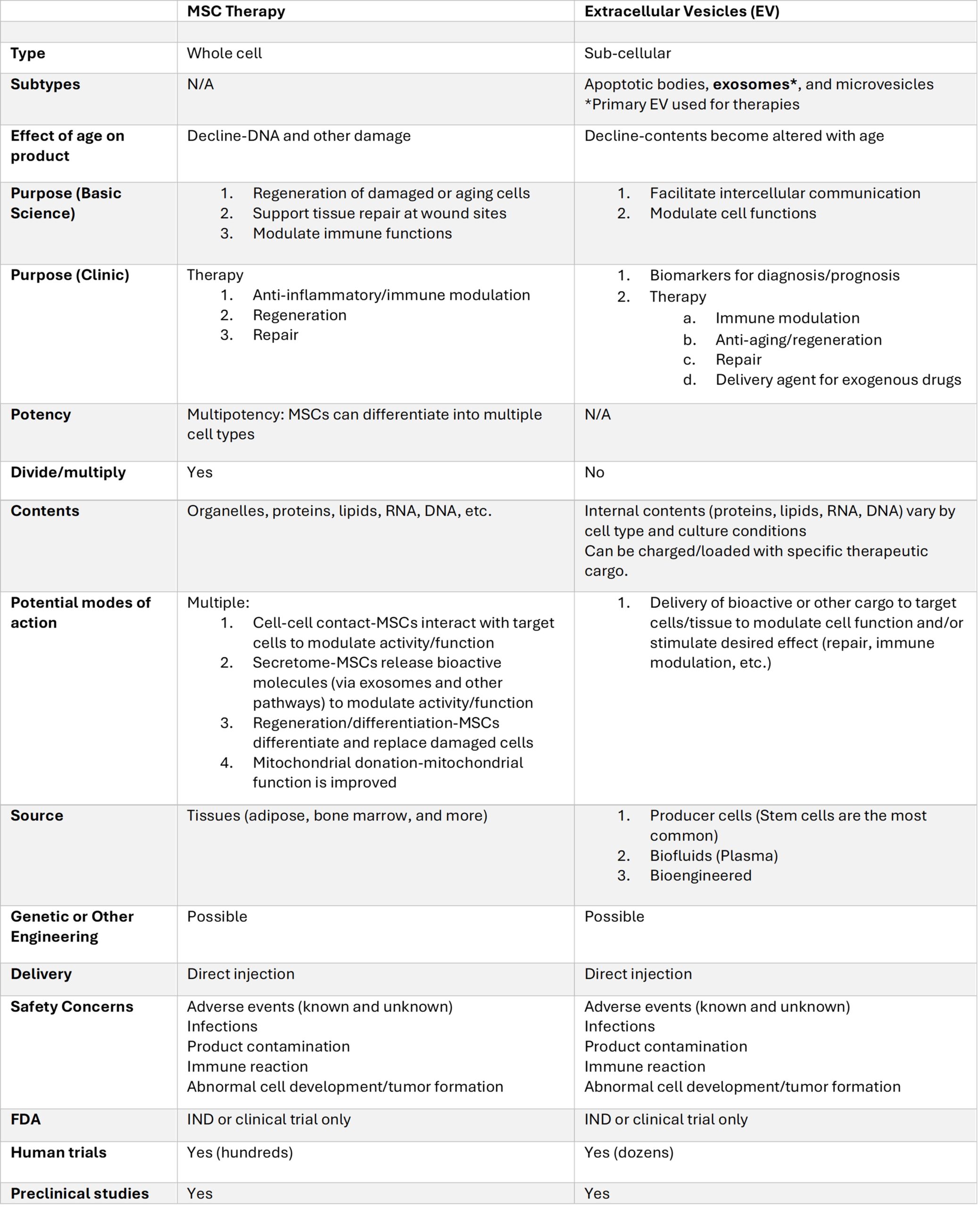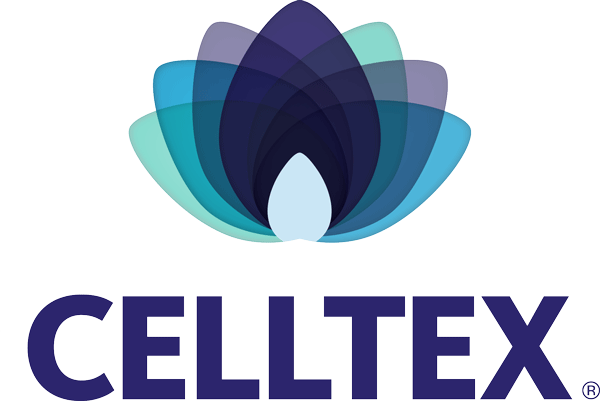Celltex News
Mesenchymal Stem Cells vs Exosomes: A Comparison Summary from the Celltex Scientific Team

Summary: What Are Exosomes?
Exosomes are extracellular vesicles secreted by cells to help deliver chemical messages to other cells in the body.
Exosomes, like MSCs, hold promise as a clinical intervention for multiple diseases and health conditions. Due to the ubiquitous nature (nearly all cells secrete exosomes) and unique properties of exosomes, they are being explored as clinical tools for multiple areas of human health. To date, most publications evaluating exosome therapy have been performed in preclinical (animal) models to assess effectiveness. Exosome therapy has performed well in animal models of cancer and inflammatory conditions. These studies demonstrated that exosome therapy could be harnessed to reduce tumor growth (exosomes loaded with anticancer agents) or decrease inflammation (MSC exosomes) in the respective disease model. However, exosome therapy is still under development to determine safety, feasibility, and effectiveness in humans.
One of the primary challenges for exosome therapy (and other regenerative or cell-based therapies) to become a viable (and cost effective) clinic option is related to the manufacturing-how to produce a consistent, clinical-grade product and how to scale up production of that product for off the shelf or mass use. The quality and potency of exosomes are highly dependent on multiple factors including but not limited to the source material (cells as the most common), growth conditions (when using cells), and isolation methods used for exosome production. The storage method is another challenge for exosome therapy as exosomes have limited stability and are susceptible to degradation due to temperature fluctuations (excessive heat and freezing cause exosomes to break down/burst, change size, or lose contents). Variations in any or all of these variables can strongly impact an exosome batch.
Nevertheless, exosome therapy is actively being evaluated in specialized clinical trials or similar research studies performed in universities or research hospitals/medical clinics. But, as of 2023, this is very much early stage, as the vast majority of these human clinical trials are phase I or phase I/IIa (meaning they are primarily evaluating safety and feasibility of exosome therapy not necessarily effectiveness). There is no exosome therapy that has garnered FDA approval to date. As such, exosome therapy should be considered experimental.

Final thoughts
As the above comparison makes clear, MSCs and exosomes overlap in many ways. Both MSCs and exosomes are actively being explored as regenerative medicine therapy options. To date, neither option has proven to be the overarching better choice for individual patients. Each option has advantages and disadvantages that make them more or less desirable for an individual. The primary advantage of MSC therapy is that the entire living cell is being used for the therapy as opposed to an inanimate cell byproduct. As such, the MSCs that remain in the patient following infusion (only a portion of the MSCs remain) retain the potential to impact patient health via the mechanisms outlined above (cell-cell interactions, secretion of bioactive molecules and exosomes, etc.) for days to months.
This summary was written and reviewed by Celltex’s Research & Development team:

Jane Young, M.D., Ph.D.
Dr. Young serves as Celltex’s Chief Scientific Officer and has over 20 years of clinical, laboratory, research, and product development experience. She has extensive academic experience in cell biology, molecular biology, protein science, biochemistry, and animal models.

Jeremy Schaefer, Ph.D.
Dr. Schaefer works as a Research and Development Scientist at Celltex. Having earned his Ph.D. in Molecular and Cellular Biology at Baylor College of Medicine, he has a deep understanding of the science behind regenerative medicine.
About Celltex
Celltex Therapeutics Corporation is an international leader in cryopreservation, or banking, and culturing of autologous, adipose-derived Mesenchymal Stem Cells (MSCs) for therapeutic use and has remained committed to improving and maintaining clients’ quality of life. Celltex has the unique ability to do what no one else can: isolate, expand and cryopreserve your own MSCs to create your master cell bank, all from one small sample of your adipose tissue. This bank of MSCs can then be used to produce hundreds of millions of clinical-grade, genetically stable MSCs that are available for therapeutic use. To learn more about Celltex, visit www.celltexbank.com
Works Cited
Immune and Inflammation
1. Therapeutic Application of Exosomes in Inflammatory Diseases – PMC (nih.gov)
2. Effects of Mesenchymal Stem Cell-Derived Exosomes on Autoimmune Diseases – PMC (nih.gov) *
Cancer
8. The Role of Exosomes and Their Applications in Cancer – PMC (nih.gov)
10. Exosomes: Insights and therapeutic applications in cancer – ScienceDirect
11. Exosome as a Delivery Vehicle for Cancer Therapy (mdpi.com)
12. Tumor-targeted exosomes for delivery of anticancer drugs – PMC (nih.gov)
13. Frontiers | Exosomes as Drug Carriers in Anti-Cancer Therapy (frontiersin.org)
More Recent News
Exploring Regenerative Medicine Beyond Stem Cell Therapy
For many, stem cell therapy is to regenerative medicine what Google is to internet searches. Yet, there are other procedures within the regenerative medicine field that may be recommended depending on the health concern being addressed.
In this article, we explore several regenerative medicine options, including platelet-rich plasma (PRP), bone marrow aspirate concentrate (BMAC), stromal vascular fraction (SVF), and exosomes.
Read MoreWhat Makes MSCs So Promising? A Deep Dive on Mesenchymal Stem Cells
Present in the body throughout one’s lifespan, adult Mesenchymal Stem Cells (MSCs) can be used in many types of regenerative medicine. This article explores how MSCs work in the body and what makes them suitable for therapeutic application.
Read More
